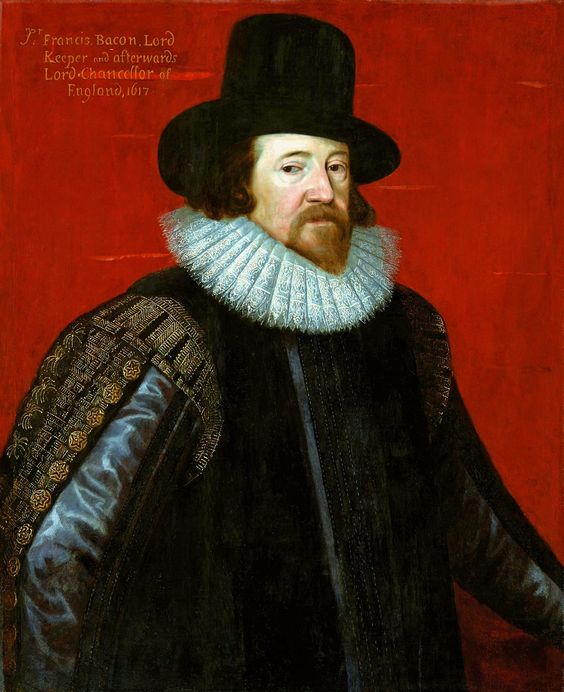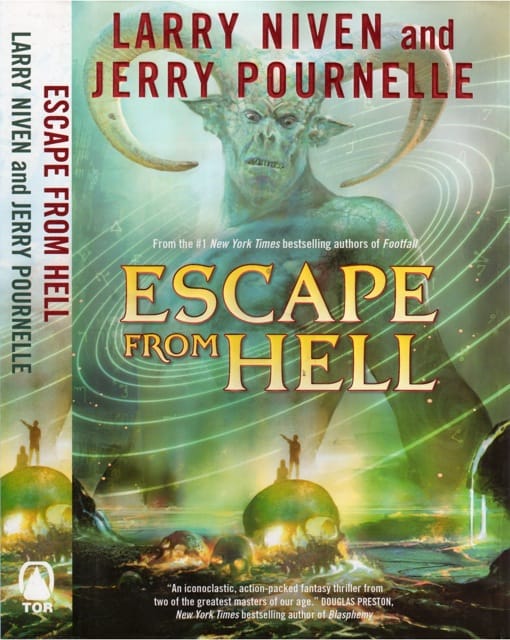The Long View 2005-09-27: The Triumph of the Will

I keep meaning to read Francis Bacon's The New Atlantis. I bought a copy in 2011, and I haven't got around to it yet. I've been working through the backlog recently, so maybe I'll get to it soon. It is a part of my cocktail party theory that science needs baser motives to be really successful.
The Triumph of the Will
New light on the theory of Intelligent Design is cast in The Well of Lost Plots, one of the novels in Jasper Fforde's Thursday Next series. The premise of the series is that fiction exists in a virtual world into which it is possible for flesh-and-blood people to enter, and which is capable of affecting the Outland, which is what fictional characters call the real world when no one is reading them. We see this exchange:
"Born and bred."
"Has anyone realized that platypuses and sea horses are fictional?"
"Are they?"
"Of course--you don't think anything that weird could have evolved by chance, do you? By the way, how do you like Miss Havisham?"
Do not pursue this thought; it is not your friend. And never you mind about Miss Havisham.
* * *
I did not renew my subscription to New Oxford Review this year, something I would normally do in September. The journal has taken a cranky turn in the last few years. Though I was never angry enough with it to cancel my subscription, nonetheless I have tired of paying for the privilege of reading about their self-commissioned crusades and how brave the editors are for undertaking them. Therefore I ignored the small, discrete, no-self-promotion renewal notice when it arrived a few weeks ago. Last week I got a second renewal notice. It came in a much larger envelope, and with much less discretion. These lines must rank among the strangest examples of copy in the history of direct mail advertising:
Crisis First ThingsFirst ThingsCrisis
Though I can't answer for Crisis, I have myself visited the offices of First Things a few times. All I can say is that if those are the conditions in which the neocons maintain their hirelings then they don't deserve to have any. Be that as it may, I quote the renewal notice here simply to point out that all three of the magazines in question do their soliciting with pretty much the same mailing lists. There is a great deal of overlap among the readerships. What NOR seems to be doing is trying to improve its position by disparaging those other journals, which it apparently regards as competition.
I am a special case, of course, but it seems to me that NOR has moved beyond picking public fights with prominent Catholics to actually insulting its own readership. No good will come of this.
* * *
I came across Francis Bacon's The New Atlantis online recently. Written in the first quarter of the 17th century, in some ways it is a less sophisticated work than Thomas More's Utopia, that oblique parody, written about a century earlier, of Plato's Republic. In fact, unlike Utopia, the new-found country really is a utopia, a technologically advanced continent in the south Pacific whose agents, we learn, move in disguise throughout the known world. This smacks of the Rosicrucian Enlightenment to me; just as, in some ways, The New Atlantis smacks of your average time-travel story, in which the writer's contemporaries travel to a future in which all current problems have been solved. But not quite: see how the hidden continent achieved its state of earthly bliss:
"There reigned in this land, about 1,900 years ago, a King, whose memory of all others we most adore; not superstitiously, but as a divine instrument, though a mortal man: his name was Salomana; and we esteem him as the lawgiver of our nation....[You] shall understand, my dear friends, that among the excellent acts of that King, one above all hath the pre-eminence. It was the erection and institution of an order, or society, which we call Saloman's House, the noblest foundation, as we think, that ever was upon the earth, and the lantern of this kingdom. It is dedicated to the study of the works and creatures of God. Some think it beareth the founder's name a little corrupted, as if it should be Solomon's House. But the records write it as it is spoken.
In The New Atlantis, we see an appreciation of the fact that new natural knowledge could change ordinary life in a historically unprecedented way. (Curiously, we are only told about the mechanical and biological marvels of the continent: flying machines, telephony, perhaps genetic engineering. However, the European sailors who happen on the New Atlantis do not see these things in person.) What is missing is the notion of progress, in the sense of a cybernetic social system that increases knowledge automatically. Knowledge increases because of royal policy, and because there is an institution consciously dedicated to its increase.
Bacon's assumption that historical change could be only an act of will was normal until relatively recently. A few decades later, Descartes was also ready to overthrow the science of Aristotle in favor of new knowledge, but he did not think of this change as an open-ended process; he thought it could be done in a generation, largely by himself. Similarly, to the extent that people thought about economics at all, they thought that any improvement had to be planned and directed. We had to wait until Adam Smith for the observation that economic activity is generally self-regulating, and another two generations for the theory that something similar might be true of the way that life has developed over time.
Maybe this notion of cybernetic change, of of self-regulated development, is more fundamental to modernity than either naturalism or revolution. A world that believed order could be maintained only by an act of will would no longer be the modern world.
This puts Nietzsche in a whole new light.
Copyright © 2005 by John J. Reilly



Comments ()